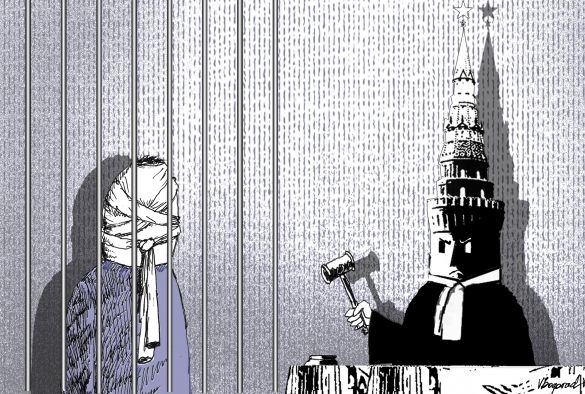If the Black Caps win the upcoming Test series against Sri Lanka 2-0 – and they should – they will go to No. 2 on the ICC team rankings. The rankings go back to 2003 and New Zealand has never been higher than 3rd before. This article asks the obvious question: is this the best Test cricket side that New Zealand has ever produced?
It seems sure that this is the best Black Caps Test side since Sir Richard Hadlee was in his prime. So this article will compare the current first choice Test team (in New Zealand conditions and assuming no injuries) to the team that beat Australia 2-1 in Australia way back in 1985. The way we will do this is by comparing all 11 players as if it was a boxing scorecard.
The prime difficulty with making a comparison is that the careers of the 1985 team are completed, and so their legends are established. Some of the 2018 team are yet to play many games. This means that their total level of greatness has to be extrapolated out from what they have achieved thus far. By the same token, the 1985 players are rated according to how good they were at the time, not according to how good they may have been earlier or later.
First opener: John Wright vs. Tom Latham
The dour John Wright was the first New Zealand batsman to 4,000 runs. At the time of the 1985 Tour of Australia he had played 41 Test matches and averaged 30.91. Wright had 2,000 runs after 39 matches, whereas Latham has already scored 2,503 runs in that time, so it seems like Latham will go past him.
Tom Latham has already scored six centuries in only 39 matches, at an average of 36.27. This is similar to Wright’s career average, despite that Latham has still been learning the game. Wright was 32 years old by the time he scored his sixth Test ton, whereas Latham did so by age 26. This suggests that Latham will have a better career than Wright.
1985 Black Caps 9; 2018 Black Caps 10
Second opener: Bruce Edgar vs. Jeet Raval
Bruce Edgar had a first-class average of 40, but was in and out of the Black Caps over the course of his 39-Test career. He averaged 30.59, with three hundreds, and a highest-ever batting ranking of 8th, achieved in August 1983. He was ranked around 30th at the time of the 1985 Tour to Australia, making him a solid backup to John Wright.
Jeet Raval is new on the scene, having received a chance at opener only after several others had been tried, but has been dependable in his limited opportunities. He is yet to score a century in his 14 Tests, but has six half-centuries already, at an average of 33.86. His first-class average is slightly lower than Edgar’s. A world ranking of 8th seems unlikely, so this one will have to go to Edgar.
1985 Black Caps 10; 2018 Black Caps 9
First drop: John F Reid vs. Kane Williamson
John Fulton Reid was an excellent player whose finest moment was a not out 158 in Auckland in 1985, leading the Black Caps to an innings victory against a Pakistani side containing Wasim Akram and Abdul Qadir. He averaged 46 from 19 Tests, and was ranked 10th at the time of the tour of Australia, having been as high as 3rd earlier that year.
Captain Kane Williamson is currently ranked 2nd in the ICC Test batting rankings, on 913 points, behind only Virat Kohli. It is the first time any Kiwi batsman has passed 900 on that scale, and reflects the fact that Williamson averages 65 over the past five years. At age 28, and with Williamson still refining his game, it seems like the best is still to come.
1985 Black Caps 9; 2018 Black Caps 10
No. 4: Martin Crowe vs. Ross Taylor
Martin Crowe was widely regarded as New Zealand’s greatest ever batsman, until this was challenged in recent years by not only Williamson but also Taylor. Like Reid, Crowe achieved a highest world ranking of 3rd, but Crowe was only ranked 32nd in the world at the time of the 1985 Tour to Australia – although he was good, he was yet to peak for another two years.
Ross Taylor also achieved a highest world ranking of 3rd, at least so far. He is currently ranked 16th and established as the Black Caps’ senior pro, holding several records, one of which is the highest Test score by a visiting batsman to Australia: 290. Much like their careers as a whole, comparing Crowe and Taylor at these particular points in time is too close to call.
1985 Black Caps 10; 2018 Black Caps 10
No. 5: Jeff Crowe vs. Henry Nicholls
Jeff Crowe was ranked 31st with the bat at the time of the 1985 tour, one higher than his younger brother Martin. Unlike Martin, this was as high as Jeff ever got. Henry Nicholls has climbed up to No. 9 in the world Test batting rankings, averaging 50+ over the past two calendar years, which means that he’s currently ranked higher than Ross Taylor.
Jeff Crowe managed three centuries and six half-centuries from his 39 Tests; Nicholls has three centuries and seven half-centuries from 21 Tests. At best it could be said that Crowe was a serviceable No. 5, whereas Nicholls shows every sign of becoming a genuine force there. This one handily goes to Nicholls.
1985 Black Caps 9; 2018 Black Caps 10
All-rounder: Jeremy Coney vs. Colin de Grandhomme
The stylish Jeremy Coney was a redoubtable batsman and a tidy medium pacer. He was ranked 13th in the world with the bat at the time of the 1985 Tour of Australia, which made him the second-highest ranked batsman in the side after Reid. He only scored three hundreds in his 52 Tests but he also scored 16 fifties, averaging 37.57.
Colin de Grandhomme is more of a 21st-century player, with incisive bowling and big hitting. It’s hard to see him averaging 37 with the bat, but he does average 35 at first-class level. Both players took 29 Test wickets, although de Grandhomme got his in a quarter of the matches. In the end, Coney’s batting is better than de Grandhomme’s batting by more than de Grandhome’s bowling is better than Coney’s bowling.
1985 Black Caps 10; 2018 Black Caps 9
Wicketkeeper: Ian Smith vs. BJ Watling
Ian Smith was a solid performer for the Black Caps for a long time. He played some great innings, most notably a 173 off 136 against India, but his Test average was only 25.56. At the time of the 1985 Tour of Australia, Smith was ranked 48th in the world with the bat, playing in a time when wicketkeepers were not expected to bat as much as they are now.
BJ Watling, however, has been world-class with both bat and gloves. He is currently ranked 22nd in the world with the bat, averaging 38.11 from 57 Tests. Although their glovework has been of a similar high standard, Watling is able to play proper innings: he has six hundreds to Smith’s two, and 16 fifties to Smith’s six, which puts him clearly ahead.
1985 Black Caps 9; 2018 Black Caps 10
First seamer: Sir Richard Hadlee vs. Trent Boult
Sir Richard Hadlee is comfortably ensconced as the greatest cricketer New Zealand has ever produced. Not only would he be the first name chosen for an All-Time Black Caps XI for his 431 wickets at 22.29, but he would be the only real chance of a Kiwi getting included in an All-Time World XI. He was ranked 2nd only behind Malcolm Marshall at the time of the Australian Tour, and would be around there for the remainder of his career.
Trent Boult is the current leader of the Black Caps attack, and has taken 222 wickets from 57 matches at an average of 28.14. Hadlee averaged 23.83 after 57 matches, which means that the gap between him and Boult was not tremendous. Boult’s highest Test bowling ranking is No. 2, which suggests that he could yet achieve greater things.
1985 Black Caps 10; 2018 Black Caps 9
Second seamer: Ewen Chatfield vs. Tim Southee
Ewen Chatfield was the dependable foil to Hadlee for about a decade. Ranked 13th in the world at the time of the Australia Tour, he had a career high of 4th in the world a few years later. Tim Southee is currently ranked 15th in the world with the ball, and has been ranked as high as 5th.
Those are similar rankings, and their career numbers are very similar as well. Chatfield took his career wickets at 32.17, Southee has taken his (so far) at 30.70. Curiously, Jimmy Anderson had an almost identical average to Southee after 61 Tests (Anderson was at 30.65), so Southee could become great yet, but if he gets to that level or not is anyone’s guess.
1985 Black Caps 10; 2018 Black Caps 10
Third seamer: Lance Cairns vs. Neil Wagner
Lance Cairns took 130 wickets at an average of 32.92, mostly at first change. He was ranked 10th in the world at the time of the 1985 tour, which was about as high as he ever got. A first-class average of 26.52 makes one suspect that he could have been a little better than his Test average suggests.
Neil Wagner has only played 38 Tests, but he has fashioned a world-class record at third seamer. He has taken 152 wickets at 28.49, which is a fair bit lower than what Cairns was striking at. He also averages 24.79 since the start of 2015, which was when he really nailed down a spot in the side. His highest ranking of 6th was achieved earlier this year, so he might soon do even better.
1985 Black Caps 9; 2018 Black Caps 10
Spinner: John Bracewell vs. Mitchell Santner
John Bracewell was an offspin bowler with the mentality of a fast bowler. He wasn’t greatly effective, taking 102 wickets in his Test career at an average of 35.81, however he did have over 500 first-class wickets at an average of under 27. He was ranked 40th in the world at the time of the Australia tour.
Left-arm orthodox Mitchell Santner is unproven at Test level, but has already shown a lot of promise. He has a slightly better strike rate with the ball than Bracewell, but a slightly higher average at this stage (17 Tests). Although they are similar with the ball, Santner is a step above Bracewell with the bat, and is likely still to improve sharply in all facets.
1985 Black Caps 9; 2018 Black Caps 10
Final verdict: 1985 Black Caps 104; 2018 Black Caps 107
The 2018 Black Caps are easily better when it comes to batting from 1-7. In Williamson, Taylor, Nicholls and Watling they have four players at the peak of their powers; the best batsman on the 1985 team was a Martin Crowe still a couple of years away from his best. Although the 1985 team also had John Wright and Jeremy Coney, they were significantly weaker with the bat overall.
It’s true that the 2018 team doesn’t have a bowler of the same class as the 1985 Sir Richard Hadlee, but their supporting bowlers are better than the team of 1985. Hadlee was a one-man show, as exhibited by the fact that he took 15 of the 20 Australian wickets to fall in the Brisbane Test of the 1985 tour. Boult, Southee and Wagner, by contrast, hunt as a pack, with able support from de Grandhomme.
*
Dan McGlashan is the man with his finger on the statistical pulse of New Zealand. His magnum opus, Understanding New Zealand, is the complete demographic analysis of the Kiwi people.
*
If you enjoyed reading this essay, you can get a compilation of the Best VJMP Essays and Articles of 2017 from Amazon for Kindle or Amazon for CreateSpace (for international readers), or TradeMe (for Kiwis).




